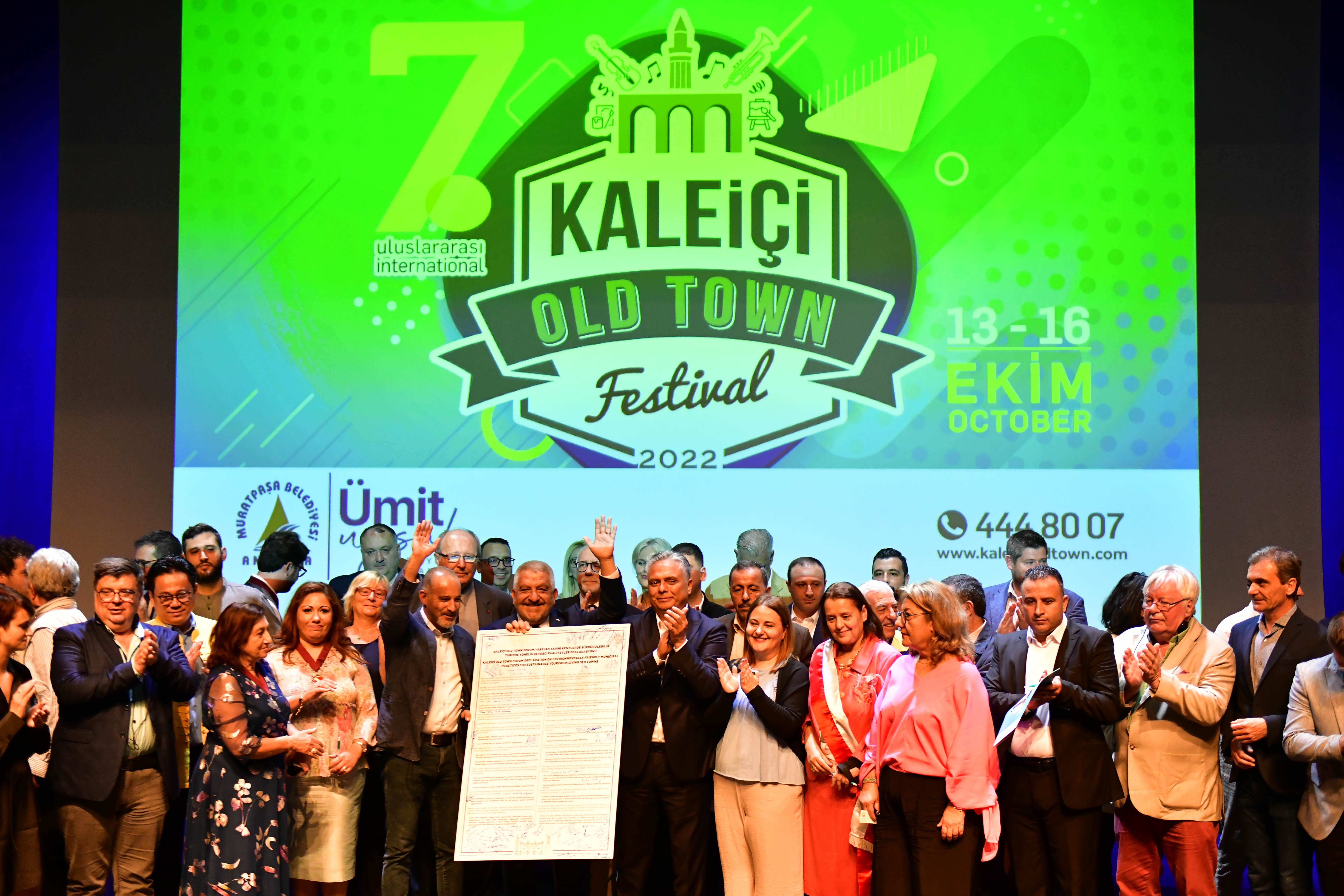
Historical city centers, which have turned into visiting areas disconnected from urban life, are becoming unqualified urban areas, deprived of city services and dominated by physical obsolescence, over the time.
This process results in the emergence of archaeological heritage sites within historical city centers as abandoned areas exposed to urban vandalism.
In this context,
Kaleiçi Old Town Forum-2022 is an international effort to transfer these areas, which reflect the cultural accumulation of human communities and give an identity to the city, to future generations as intentional urban areas suitable for changing living conditions.
The undersigned city representatives hereby adopt the following views, which emerged in the forum convened on October 15, 2022, with the title
"Environmentally Friendly Municipal Practices for Sustainable Tourism in Living Old Towns": Local governments meet the needs of their visitors, local communities, urban centers and archaeological heritage sites in a balance between sustainability and use of conservation, while preserving and developing future opportunities. In this respect, the declaration is a firm commitment to the environment and cultural integrity. The seasonal structure of the tourism sector creates an intensifying pressure on historical city centers, local people and limited resources such as energy, food and raw materials.
In order to minimize the effects of seasonality, alternative tourism types should be supported and promoted. Supply and demand must be managed effectively. The pressure on water resources, which are rapidly depleted as a result of climate change, increases and decreases according to the intensity of touristic activities.
For this reason, landscaping applications that require less water should be started. The use of gray water, which makes it possible to recycle waste water, should be expanded. Education policies should be implemented to raise awareness of visitors, business employees and local people and to use resources efficiently. The impact of greenhouse gas emissions caused by energy sources used for transportation, heating, cooling and lighting on climate change should be included in tourism planning.
The use of renewable energy should be increased in historical city centers. Investments in this area should be supported and energy-saving tourism facilities should be rewarded. Pedestrianization policies should be implemented in a balance between protection and use. The lack of a comprehensive collection and disposal system for liquid and solid waste in historical city centers is a serious problem.
In order to solve the waste problem, waste awareness should be developed among visitors and local people. It should be ensured that local governments establish an effective waste management system. Consumption habits, which are constantly supported by the dominant ideological structures and institutions and increased by incentives and pressures, prevent the realization of sustainability and the protection of natural resources.
Historical city centers should be combined with a local development model that will enable the activities in different areas of life to be experienced in a satisfying, deep and right pace, stimulate the senses of the visitors and protect the local identity, biodiversity and natural environment. 